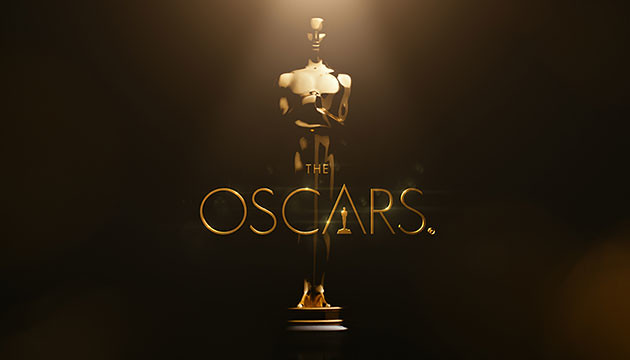Jimmy Kimmel’s hosting was a bit rough and tumble. He’s got some charm to him and isn’t likely to inspire too much controversy, but his opening monologue was one of the weakest of recent years. Few of the jokes were memorable, and most were predictable. He even made the same “no one saw your film” joke three times in a row. He set the stage early on with some Trump references which were guaranteed to be a staple of this years’ awards season. But I was pleasantly surprised just how few political speeches there were and how none of them really had that soapbox feel we were ready to expect from Meryl Streep at the Golden Globes. I think because they mostly actually came from people effected by Trump’s xenophobia like Gael Garcia Bernal and a spokesperson for Asghar Farhadi.
For Kimmel’s poor monologue, he did make up for it with a good O.J. joke (this has been quite a year for O.J. Simpson), and a really funny recurring rivalry with Matt Damon carried over from his talk show. There were also some great moments where Seth Rogen and Michael J. Fox exited a DeLorean on stage, and Auli’i Cravalho showed off her stunning voice (also the Rock introducing her was as charismatic as ever). While a little awkward, that sequence where L.A. tourists were tricked into the building and interacted with celebrities was more original than the surprise catering that’s become a strange tradition.
Suicide Squad is now an Oscar winner which will always sound weird. Same for Fantastic Beasts and Where to Find Them. On a less weird note, La La Land won Best Cinematography and Production Design, as well as Original Score and predictably Original Song for “City of Stars”. Zootopia upset a handful of better films for Best Animated Feature. Kenneth Lonergan won an Oscar for his original screenplay of Manchester by the Sea and Barry Jenkins’ team won the adapted screenplay award for Moonlight, both of whom also directed their films.
Mahershala Ali’s performance in Moonlight won him the Oscar for Supporting Actor, delivering a classy speech. He’s also the first Muslim actor to win an Oscar. The most notable speech was from Viola Davis who won Supporting Actress for Fences. It was heartfelt and very impassioned if a little overboard in its metaphors. Emma Stone won Best Actress for La La Land, and Casey Affleck won Best Actor for Manchester by the Sea, both deserving and expected results. Damien Chazelle made history as, at 32, he is the youngest ever winner of the Best Director Oscar for La La Land.
But of course the grand point in the ceremony came with the Best Picture award, and that’s where this year’s ceremony is going to go down infamously in Oscar history. In celebration of the 50th anniversary of Bonnie & Clyde, Warren Beatty and Faye Dunaway presented. After some confusion when glancing at the result, in a moment that looked like a comedic stalling for time, they announced La La Land as the winner. The producers of that film had begun their acceptance speeches when it was revealed there had been a mistake. The Oscars accounting firm had given Beatty and Dunaway the wrong envelope (it was the duplicate of Emma Stone’s and so they assumed it meant La La Land was the winner). The real winner of the night, almost lost among this chaos, was Moonlight. La La Land producer Jordan Horowitz very humbly and graciously gave the statue to the producers of Moonlight, allowing Jenkins and his crew a great but brief triumphant speech.
This is of course a pretty big incident, and a massive embarrassment for the Academy. Never in the 89 years of the Oscars has the wrong name been called out for the most important award of the night! It almost seems staged except it would be too cruel a prank. Many have been drawing fair comparisons to Steve Harvey’s similar blunder at the Miss Universe pageant earlier in 2016. The pro of this situation is that it gave the Oscars some last-minute publicity after what amounted to again, another low-rated show. But the cons are that it undermined the Academy’s competence and forced the crew of Moonlight to share their big moment with this scandal. I hope it at least provokes more people to check out Moonlight, which I consider the most deserving after La La Land.
Those last few minutes turned this years’ Academy Awards from fairly pedestrian and unambitious, to unpredictable and crazy. That’s also counting the goof-up in the In Memoriam when living producer Jan Chapman’s image was placed over the dedication to late costume designer Janet Patterson. However I was quite happy with some of the results, disappointed by others, and as taken aback as everyone else at the end. In terms of presentation style, Kimmel was competent but not very effective. The Academy really needs to take a chance with a host again, pick someone who can spice up the ceremony and be a little more unconventional. Still it was the big night in film, made possibly bigger than ever before, and I look forward to celebrating a slew of great movies in 2018!

Comments
Post a Comment